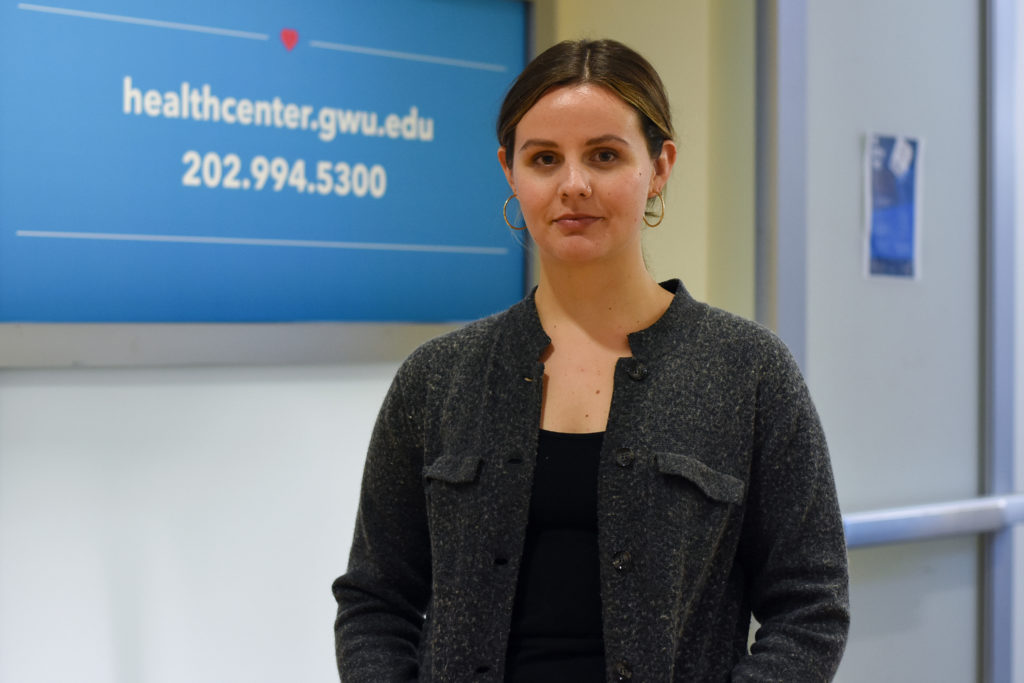Updated: Nov. 30, 2018 at 6:26 p.m.
A graduate student group is trying to scrap two “wholly unnecessary” clauses in the University’s health care plan that students say pose barriers for transgender students and those with mental illness.
Members of Graduate Students United launched a petition earlier this month calling on the University to cut two clauses from the Aetna health care plan excluding coverage for self harm or cosmetic procedures. Students said the policies stigmatize mental health issues and wrongly rule out some gender-affirming procedures like top surgery or hair removal – and officials said they have already reached out to Aetna to discuss changes for the 2019-20 academic year.
Currently, the health care policies state that services will not be covered as a result of suicide, attempted suicide or self harm if an individual does not have a pre-diagnosed mental illness. The second clause states that hormone replacement therapy, cosmetic and counseling treatment related to “gender reassignment” will not be covered.
James Hannaway, a member of GSU, said he met with University President Thomas LeBlanc to discuss the clauses in late October, which he said led to an additional meeting with Tracy Boswell, the director of administration and education in the Colonial Health Center, and a student experience administrator, last Monday. He said LeBlanc did not agree with the clauses and does not want to prevent transgender individuals from seeking certain procedures.
“LeBlanc hadn’t heard of these policies before, which is fair – the insurance policy is a lengthy, slightly complicated document,” he said. “But these are provisions that we found uniquely harmful to people in vulnerable positions.”
The Hatchet was unable to reach LeBlanc for comment through a University spokeswoman.
At the following meeting with Boswell and the student experience administrator, Hannaway said the two told him that they spoke with employees of Aetna and are working to change the language of the self-harm clause by next academic year.
“That’s a big win, and I hope it is what they say it is,” he said. “We’re going to try to see this through and make sure those commitments turn into a real change in the policy.”
Cissy Petty, the dean of the student experience, said she also met with students about the clauses last week. She said that after officials reached out to Aetna to discuss the clauses, they learned that while the “language in the policy could be clearer,” the health insurance does cover care related to self harm resulting from depression, anxiety or other factors.
She said officials requested “modifications” to the language to go into effect next academic year, but she did not specify what they were.
Petty added that coverage for all surgical procedures, “including gender-affirming surgeries,” are typically determined by insurance companies after receiving medical documentation of the procedure.
“We will look at the specific language in our health insurance policy to ensure that the wording better reflects our university values,” Petty said in an email. “We are grateful that students have highlighted these concerns and will communicate any updates to the policy when we roll out next year’s plan.”
Jackie Bolduan, a member of GSU, said the meetings with officials and the petition are ways to spread awareness of the clauses, which students likely have not heard of because the health care plan is more than 40 pages long.
“The problem is, no one is reading through this 40- to 45-page policy before they sign it because if this is your only option, it really doesn’t matter if you read this whole thing – you either sign this or you don’t,” Bolduan said.
Officials overhauled the Colonial Health Center earlier this year, mandating that undergraduates automatically enroll in GW health insurance unless they submit an opt-out waiver indicating that they’re already insured under a different provider.
Bolduan declined to say how many signatures the petition has garnered since it launched Nov. 4 because they have “been changing on a daily basis.” She said the final number of signatures will be published once the petition is sent to officials at the end of the semester.
She said that in addition to the petition, members of GSU have also started spreading awareness of the policy with “did you know?” fliers on campus and meetings with student organizations, like the GroW Garden and the Progressive Student Union, to explain clauses in the University’s health care plan.
“Our goal for the petition is to say, ‘Why does GW have these clauses? What’s the point in having them there?’” she said. “They’re harmful, they’re inhumane and many people probably aren’t even aware they’re in the policy until you’ve dug through it or until you’ve come across a lack of coverage.”
GSU originally advocated for graduate student unionization last year, but after months of stalemating with the University, the group shifted its focus this semester to push for cheaper health care options.
Andreas Meyris, a member of GSU, said that before launching the petition, he conducted research on health care policies at institutions like Boston, Georgetown and Catholic universities, all of which he said do not have the self harm and cosmetic surgery clauses in their plans.
Meyris added that researching the cosmetic procedures clause led him to the Transgender Law Center, which states that prohibiting coverage of these procedures is a form of discrimination against transgender individuals.
“GSU’s argument is that determining what type of gender-affirming care is necessary should be between an individual and their physician, not an insurance company,” he said.
This post was updated to reflect the following correction:
The Hatchet incorrectly reported that Cissy Petty, the dean of the student experience, attended a meeting with James Hannaway last Monday. She attended a meeting with other students to discuss the health care clauses. We regret this error.





